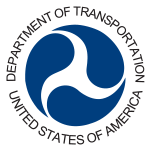Audit Reports
FHWA Does Not Effectively Ensure States Account for Preliminary Engineering Costs and Reimburse Funds as Required
Summary
The Federal Highway Administration (FHWA) authorizes billions of dollars in Federal-aid funding to assist States in the design and related ground work—known as preliminary engineering (PE)—needed before a highway or bridge project advances to physical construction or acquires right-of-way. If a project does not acquire right-of-way or start construction within 10 years after the Federal funds expended on PE became available, Federal law requires States to repay the Highway Trust Fund the full amount of Federal-aid expended on PE. Given the billions of dollars in Federal funds spent on State highway and bridge PE projects, we assessed FHWA’s policies and procedures for (1) accounting for Federal PE funds used for highway projects, and (2) ensuring States repay the Highway Trust Fund for Federal PE expenditures when required.
FHWA does not effectively account for Federal highway and bridge funds used for PE. Specifically, the four FHWA Division Offices we reviewed do not effectively assess whether States’ systems and processes accurately account for PE projects. In addition, FHWA lacks effective controls and practices to promote transparent and accurate accounting for PE projects. For example, States incorrectly coded non-PE projects as PE in FHWA’s financial information database. Based on these results, we project that Division Offices approved approximately $3.1 billion in Federal PE expenditures (8 percent of total PE expenditures) for non-PE highway and bridge projects nationwide. We also found that FHWA lacks adequate processes to ensure States repay Federal funds spent on PE. For one-third of the projects in our statistical sample, FHWA did not take prompt action to ensure the State complied with Federal PE requirements when the project did not acquire right-of-way or start construction within the 10‑year limit. Based on these results, we project that $3.3 billion of Federal funds authorized during fiscal years 2000 through 2004 were at risk of not being repaid to the Highway Trust Fund or not used effectively due to FHWA’s inaction. When PE actions were taken, the four Division Offices we reviewed did not consistently follow FHWA policy. For example, the Division Offices allowed States to avoid PE repayment without adequate justification, and did not ensure States repaid PE costs timely. These issues occurred, in part, because FHWA has not implemented sufficient controls and guidance for enforcing compliance with PE requirements. FHWA concurred or partially concurred with our seven recommendations to help FHWA better account for Federal funds spent on PE and ensure States reimburse the Highway Trust Fund when required.
